#FeelingsMatter!
Feelalytics produces the #FeelingsMatter podcast. Join us for live podcasting to ask questions about emotions or share your views… weekly on YouTube, Facebook, Twitter or wherever you listen to podcasts.
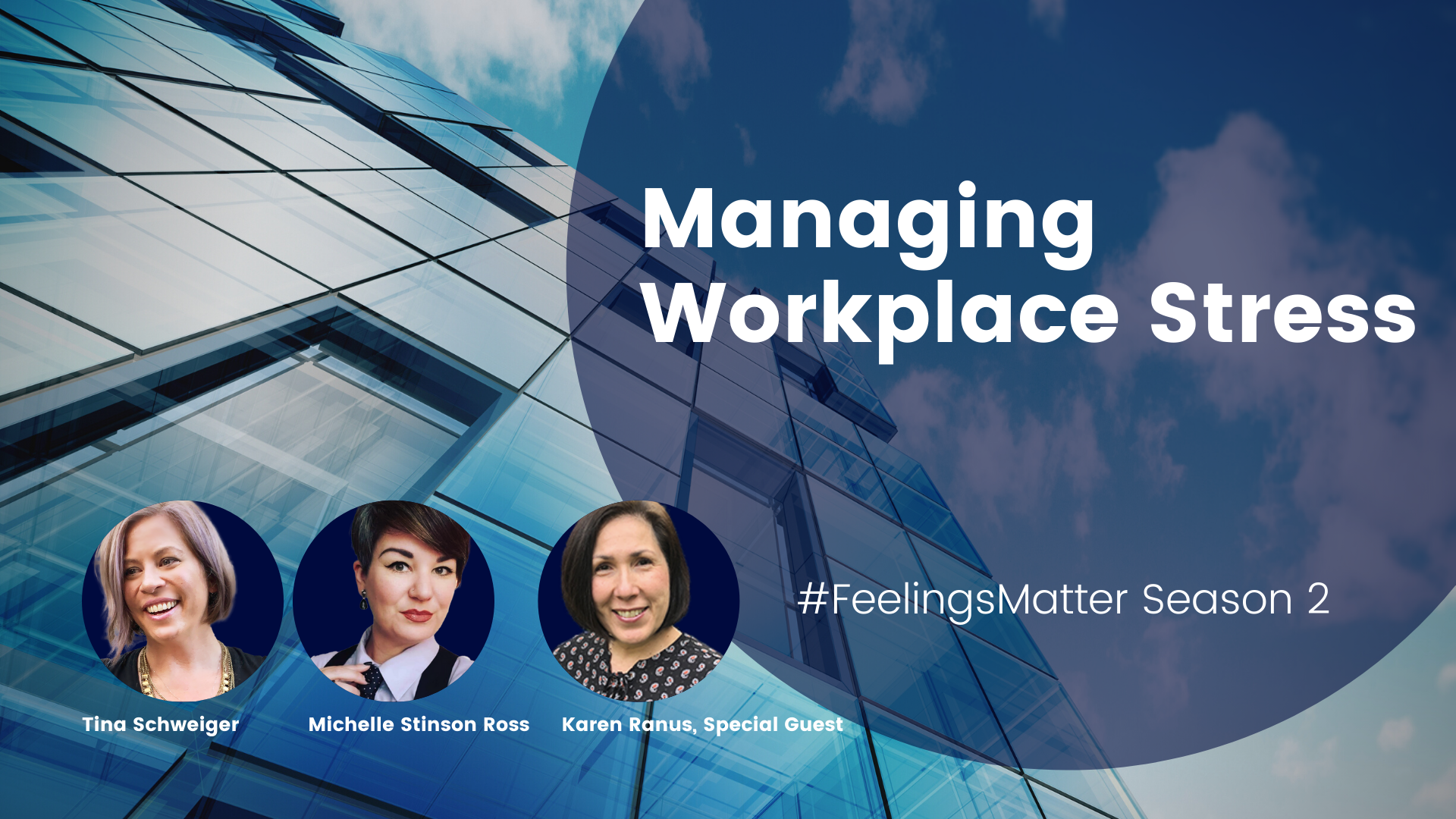
Managing Workplace Stress
The truth is, we can tell when we’re stressed out. Some of us get irritable. Some of us grind our teeth or clench our back muscles. We eat junk food. We get headaches and have trouble focusing. It might seem like being stressed is counterproductive to taking care of work, and that’s because it is. Stress, and its symptoms, are merely the byproduct of a biological system our bodies created, and we grew out of long ago.
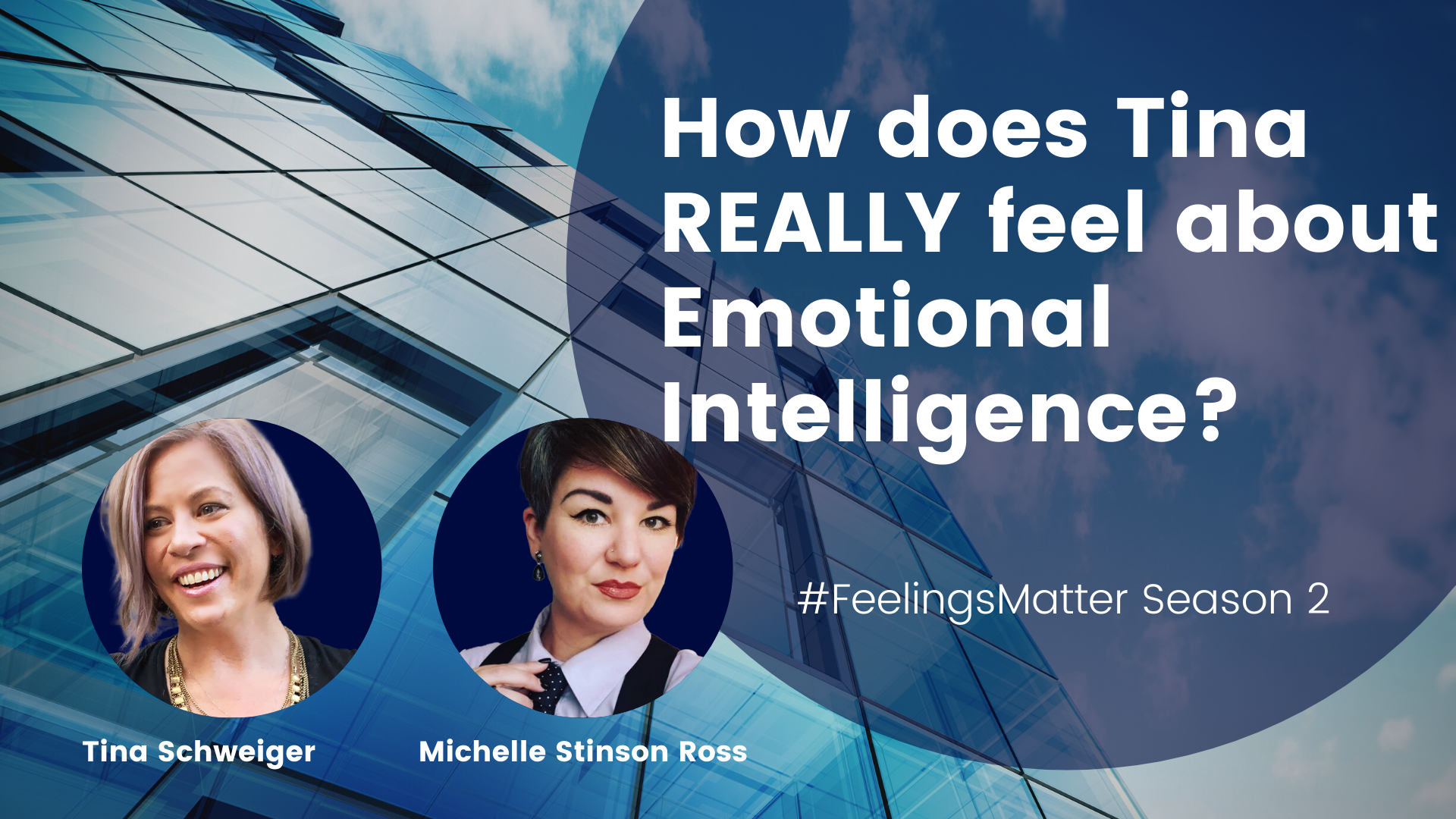
Emotional Intelligence: a Vital Skill Set
Even the very definition of emotional intelligence is not so easily agreed upon. Tina Shweiger recently discussed some of the more vexing issues of roping in a concept such as Emotional Intelligence.
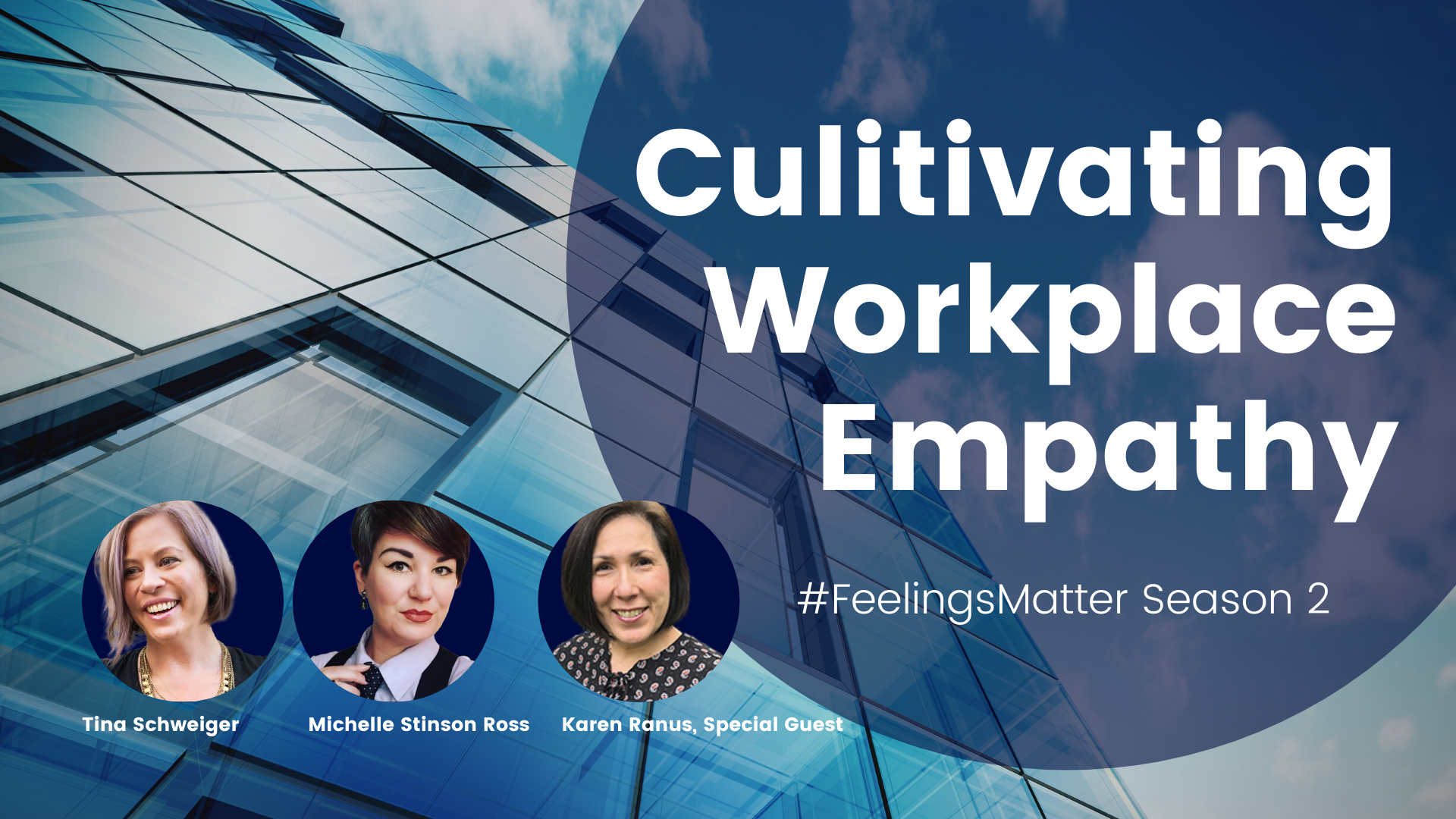
Cultivating Workplace Empathy
Empathy is listening. It is actively listening, and reacting and not interrupting them or telling them what they should do. To be empathic, all you have to do is slow down, and take the time to focus on the speaker and engage with what they are saying. When the speaker feels comfortable enough to express how they are truly feeling without shame or judgment, then they truly feel like they are valued at their job.
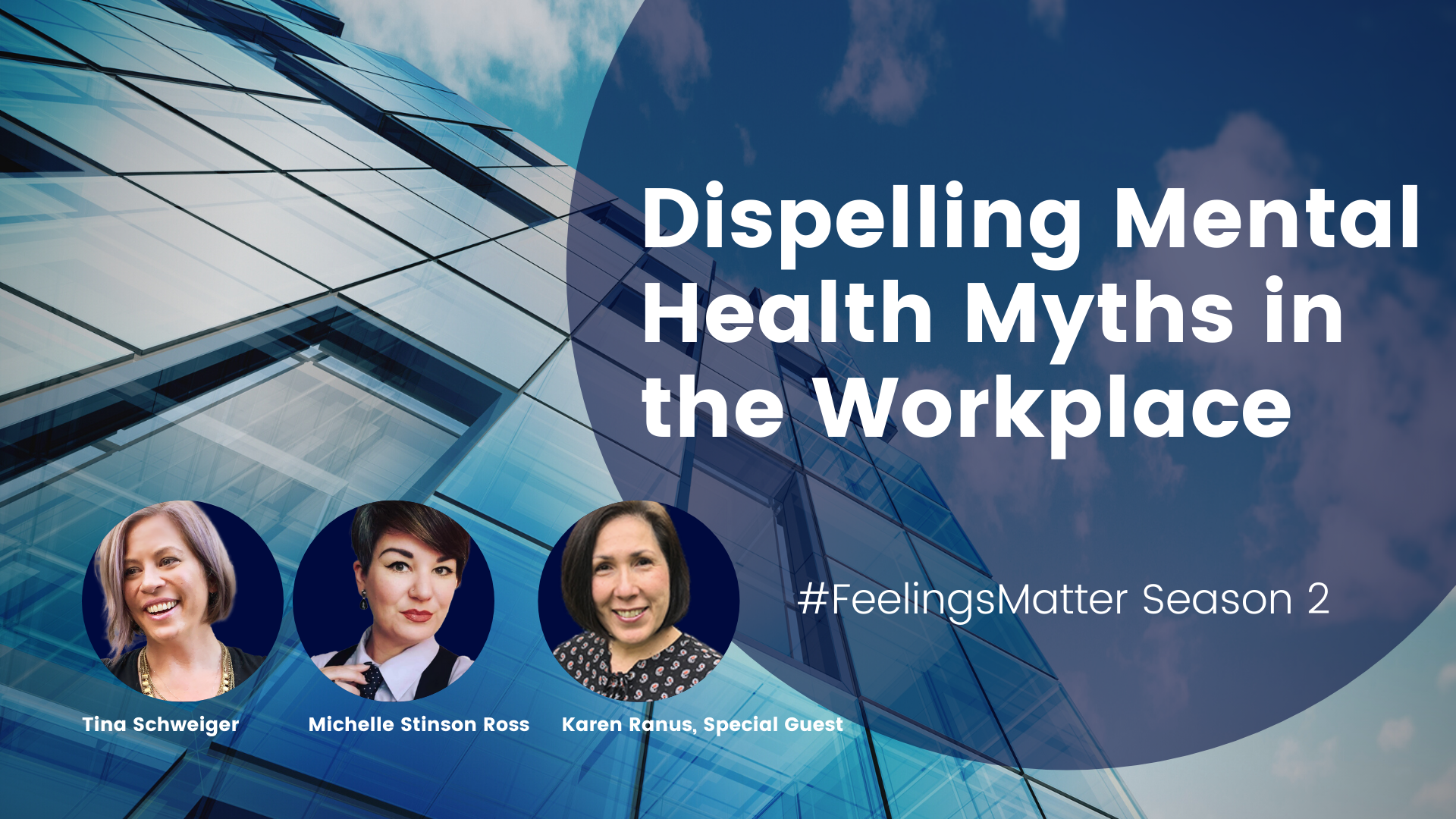
Dispelling Mental Health Myths in the Workplace
According to the 2021 Mind the Workplace survey conducted by Mental Health America, 9 in 10 employees report that workplace stress affects their mental health. Unfortunately only 3 in 5 employees also feel like they are getting adequate support from their supervisors to manage workplace stress.

Burnout and the Great Resignation
Workplace culture is as complicated and nuanced as each individual business. The realities of how culture is expressed in communication, power dynamics, and interpersonal behavior varies widely from team to team even within the same company. Picking apart the causes of stress and burnout requires much more data than most companies collect from their workforce.
Experience sampling, not surveys, can get to the heart of chronic stress and burnout and provide the feedback to effectively change workplace culture.

Stressed: How Remote Working Impacts Mental Health
Working from home doesn’t have to be a horror movie. Sure the constant bombardment of home and work tasks may feel like the phone booth scene from The Birds, and the sheer isolation may make your house seem like the Overlook Hotel, but if we all just take some time for ourselves, and set some boundaries, we might just make it out of this alive.

Vulnerable: Psychological Safety
The term “vulnerability” has taken on a negative connotation. We tend to think of vulnerability meaning impervious to attack, or easily capable of being hurt. Even as I am sitting down to write this, an ad is playing, attempting to scare/warn me that my computer is dangerously vulnerable to cyber-attacks. Oh no! But being vulnerable can be good.
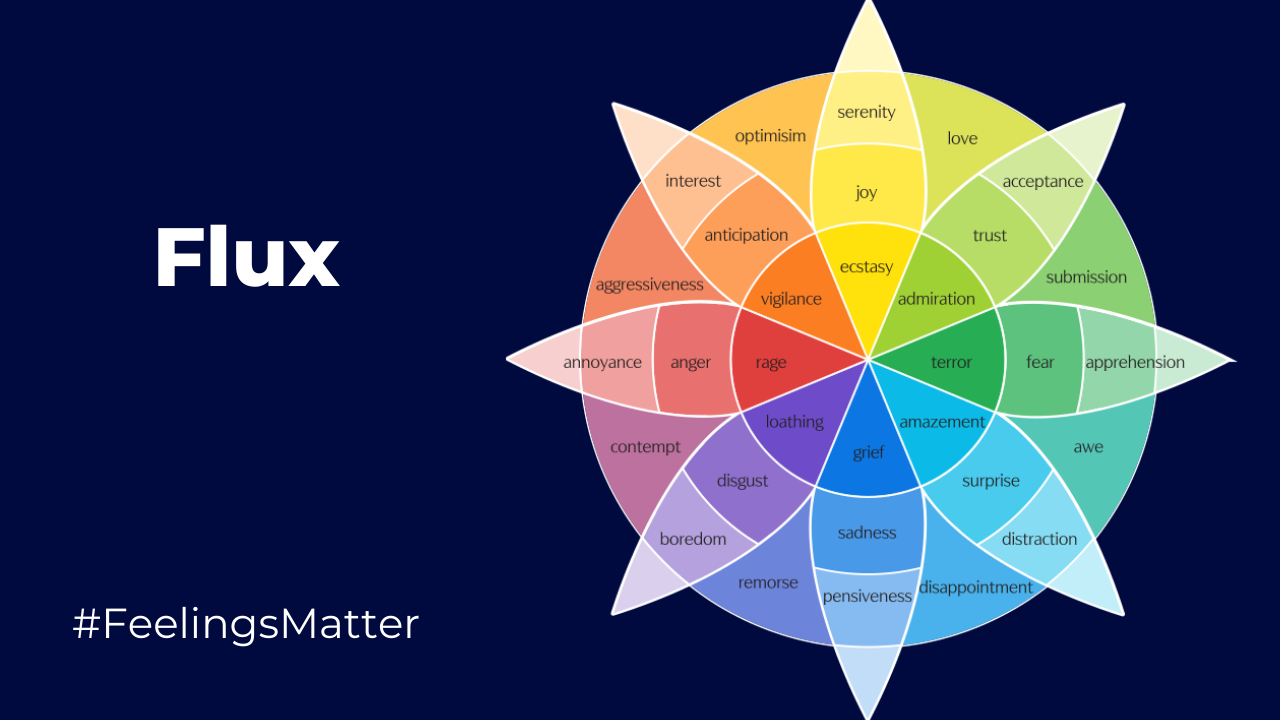
Flux: Moving from One Emotional State to Another
When we think of intelligence, we tend to picture things like acing a math test or solving a Rubik’s cube - finding solutions to concrete problems. When it comes to identifying emotional intelligence, things can get messy. Emotions are…complicated. If mental intelligence is buttered noodles, emotional intelligence is a Spanish paella: there are dozens of ingredients and flavor combinations that it can easily become overwhelming. Just as we can experience multiple flavors, sometimes we feel multiple emotions at the same time.

Isolation: 100 Misfits with Sam Fiorella
Depression doesn’t always show blatant signs. Sometimes someone, even a close loved one, may be struggling right in front of us. They might hide their suffering, or not mention certain issues, because our society has attached a stigma to being open about certain feelings. But discussing mental health is the first step to seeking help; sometimes a conversation can save a life. And it starts by simply saying hello.

Needy: Feelings at Work
There’s very little that people can see eye-to-eye on these days. But one thing that we all agree with, is that we are stressed. Every one of us, we all feel stressed. We’ve got bills to pay, appointments to make, our family's annoying us, and the car’s making a funny noise. Whatever it is, we’re overwhelmed and we just need a safe place to vent. For most of us, on our list of Safe Spaces to Relieve Stress, the Workplace ranks somewhere between 9-Year Old’s Birthday Party and Car Stuck In Gridlock Traffic With No AC. And Full of Bees. But it doesn’t have to be.

Familiarity: Emotional Branding
Associating your brand with an emotion is essential to your brand’s voice, it’s what you want your customers to think of when they think of you. Without realizing it, it’s what customers use to determine whether or not they want to buy what you’re offering.

Kindness: Nick Adkins' PinkSocks
While bright pink socks might not be on brand for your company, any business can benefit from the connection bonding that forms from gifting. A simple gift or complimentary service will not only make someone else’s day, it will help establish a company culture that values empathy and honoring others. Forming connections within your company, as well as with customers, is a great way to ensure loyalty, company satisfaction, and a strong supply of fresh footwear.
Closing the Mental Health Gap at Work
Most notably, 71% of bosses think they support employee mental health well or very well, while 73% of workers think their bosses may be “full of it” on that topic.

Judgement: Moral Emotions
Most people don’t realize how much their emotions direct their moral decisions. But without feeling emotions, you may be unable to make any moral judgements. It’s important that we first understand the concept of morality. Morality refers to the differentiation between decisions, actions, and intentions that are right and wrong.

How Emojis Can Help Manage Employee Turnover and Improve Corporate Culture
The Net Emotional Index (NEI) is a new business metric—think real-time emotional KPI—based on emotional data that enables businesses to manage employee turnover and corporate culture in the age of Covid and work from home.
According to research highlighted by the Harvard Business Review, toxic workplace cultures have driven 20 percent of U.S. employees out of their jobs in the past five years — at a turnover cost greater than $223 billion.

Calm: Emotional Regulation
Emotion regulation is the ability to exert control over one's own emotional state. It may involve behaviors such as rethinking a challenging situation to reduce anger or anxiety, hiding visible signs of sadness or fear, or focusing on reasons to feel happy or calm.

Fascination: Measuring Emotion
Let’s face it- emotions matter. Whether we’re aware of it or not, emotions can play a role in attention, memory, decision making, performance, and our overall mental well-being. But measuring and assessing these emotions is not always straightforward and easy. Given the impact of emotions in our daily lives, and the complexity of measuring them, they’ve become an important aspect in different environments even in ones where we would rather they didn’t such as the workplace. Let’s take a deeper look at what emotions are, why they are significant in various environments, and how we can measure them.

Suspense: Anxiety and Mental Health in Pop Culture
Special guest, J. Alexander Greenwood, sat down to chat about the value of mindful representation of mental illness in books, TV, film. Alex is an award-winning writer, public relations consultant, speaker, and podcaster. He is best known as the author of the acclaimed John Pilate Mysteries.
“John Pilate is an everyman character that finds himself in mysterious circumstances.”


Flow: the Experience Sampling Method
In the early 1970’s, Mihaly Csikszentmihalyi was inspired by the new technology of pagers used by dispatchers to stay connected with their on-demand workers like physicians and police. He realized that pagers could be used by study participants to prompt a self-report of a person’s experience in the moment – allowing him to study the mind state of flow by gathering both the context and content of a moment in life.
Learn More About Mindful Appy
〰️
Learn More About Mindful Appy 〰️
